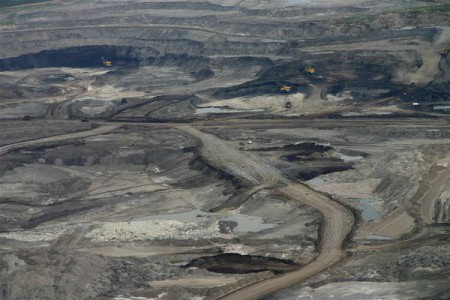
|
||
|
|
||
|
02 08
More Evidence Against Biofuels
Corporate Knights Forum is against biofuels. We’ve already written about how they replace one bad energy habit with another. Still, people argued that even if corn based fuels do compete with people for diminishing food supplies, at least they are cleaner. Or not. Turns out that researchers are skeptical about those claims. Here is what the International Herald Tribune has to say on the topic:
The cause of this environmental rethink? Turns out that in the environmental ledger someone forgot about the line item titled, “Land Use Change.”
01 31
WalMart: Agent Of Green?
The New York Times ran an article January 24th on the The chief executive of Wal-Mart Stores, H. Lee Scott Jr., said that “we live in a time when people are losing confidence in the ability of government to solve problems.” But Wal-Mart, he said, “does not wait for someone else to solve problems.”WalMart promises to reduce the energy used by its products by 25%, and will force its suppliers to be more ethical in their treatment of workers. blockquote>Mr. Scott also said he would press for suppliers in China, which are known for flouting environmental rules, to comply with that country’s environmental regulations and would require them to certify that they meet industry standards.
01 29
Iraq Votes For Kyoto Protocol
In what seems the biggest irony of modern green politics, the Iraqi government voted last week to endorse the Kyoto Protocol. Mike Niza of the New York Times blog, “The Lede” has this to say:
01 28
The Story Of Stuff
The “Story of Stuff” goes something like this.... We strip the earth to provide materials to make things that, in their making, produce toxins that kill us while allowing us to be endless consumers. Come to think of it, maybe Annie Leonard tells it better:
Want to see more? Go to the “Story of Stuff“ web site.
01 21
Will Technology Lead Us Away From Environmental Doom?
"Lies, damn lies, and statistics” goes the often quoted phrase, and it is never more appropriate than when used as a rough description of the battle for the environmental high ground. Statistics are used by both sides in the struggle for public opinion to persuade, cajole, and even intimidate. Recently though, Arik Levinson of Georgetown University released a study showing that American manufacturers increased production by 70% while, simultaneously, reducing the production of primary pollutants by 58%. For advocates of free market responses to the environmental crisis, this study is becoming the holy grail—an illustration that markets can change without wholesale government intervention.
Mr. Levinson concludes:
What the study does not show, however, is the impact governmental intervention (yes, at one time not long ago government did demand industry clean up its act) and social change pressured manufacturers to clean up their act. Reading this analysis one would be forgiven for thinking the market spontaneously self-corrected because that’s what markets do. Nothing could be further from the truth. Big markets tend to be juggernauts that once on a chosen path take heroic efforts to change. People, on the other hand, know when their environment is collapsing, and can make faster, finer tuned course corrections. We would argue that the reduction in America’s pollution is the result of societal pressure for change driven by the Rachel Carsons and Sierra Clubs of the world, and not the result of some previously unrecognized function of technological determinancy.
01 11
Oil Sands Projects Are Planet Killers
The Pembina Institute and World Wildlife Fund announced yesterday that Canada’s multi-billion dollar oil sands projects rank less than F minus on their environmental scorecards.
Jeffery Jones of the Guardian writes:
With oil sands refining already responsible for Canada’s abysmal Kyoto record, the thought that production will increase threefold indicates that governments have abdicated any responsibility for the fate of the planet. One day--not long from now--all Canadians will have to pay a price for our lack of environmental stewardship today.
01 09
“America Is Addicted To Oil” and Canada Will Pay The Price
In case you wondered why Canada has been so far off in its Kyoto carbon reduction plans:
|

Contribute to the MESH Cities intelligent city database. Click here.
Read what people are saying about the environmental issues that impact us all
News about wind energy
News about green investing
Blog posts about electric cars
|
The best green news sources on the Net
Treehugger
Eco Worrier
Inhabitat
Lime
World Changing
|


